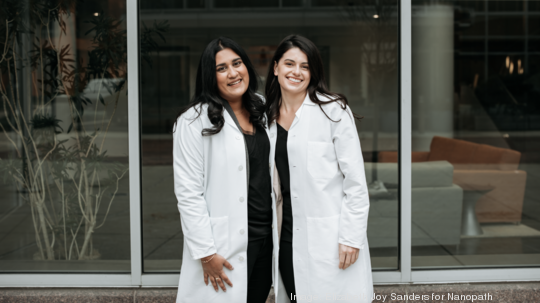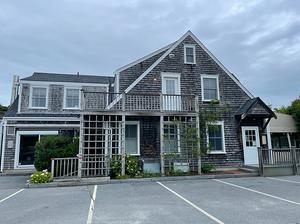
A women-led, women’s-health focused diagnostics startup has raised its Series A round.
Cambridge-based Nanopath has closed a $10 million round led by Norwest Venture Partners and Medtech Convergence Fund. The startup is trying to speed up pelvic and gynecologic health testing so patients can get results and a treatment plan in a single visit.
Amogha Tadimety and Alison Burklund co-founded the company in 2019 while completing a Ph.D. program at Dartmouth that combined engineering and entrepreneurship.
“When we met, we were like, imagine if you could grab a rare analyte in a complex patient sample, put it right atop this sensor, exactly where you want it, and probe its genetic information. That could be insanely valuable across applications,” Tadimety said.
The way most diagnostic tests work now, Tadimety said, is by amplifying the amount of DNA or RNA in a patient sample to detect anything present. Nanopath is working on a technology that allows for direct detection of DNA and RNA without amplification, meaning results will be available much faster than traditional tests.
“We’re instead replacing that upfront time with a more sensitive sensor that’s able to detect the DNAs,” Tadimety said.
Nanopath envisions this technology being used in outpatient settings. A patient would provide a sample, like blood or saliva, into a disposable cartridge, which a staff member would then place into a toaster-sized machine for testing. The results would come back within 15 minutes.
The company is currently testing its technology detecting bacteria and viruses related to pelvic and gynecologic health.
The pair came to focus on women’s health by talking to dozens of health care providers. Tadimety said they quickly learned that women receive misdiagnoses at a higher rate than men and the tools used for tests are largely outdated and may lack accuracy.
Nanopath’s technology is still in the R&D phase, Tadimety said, but they are testing it in pilot trials with New England hospitals.
The company operates out of LabCentral in Cambridge and has six full-time employees. Its first funding came from the Rice Business Plan Competition, where Nanopath placed second and took home $150,000 in convertible notes and grants. Nanopath has since raised a $1 million seed round and received an NSF small business grant for $250,000.
Nanopath will divide its new funds between building its team and scaling its technology. Tadimety said they’re looking to reach 10 to 15 team members this year, from engineers to physicists and microbiologists to commercialization experts. The funds will also be used to read clinical samples, complete regularly work and scale up tech development and manufacturing.








